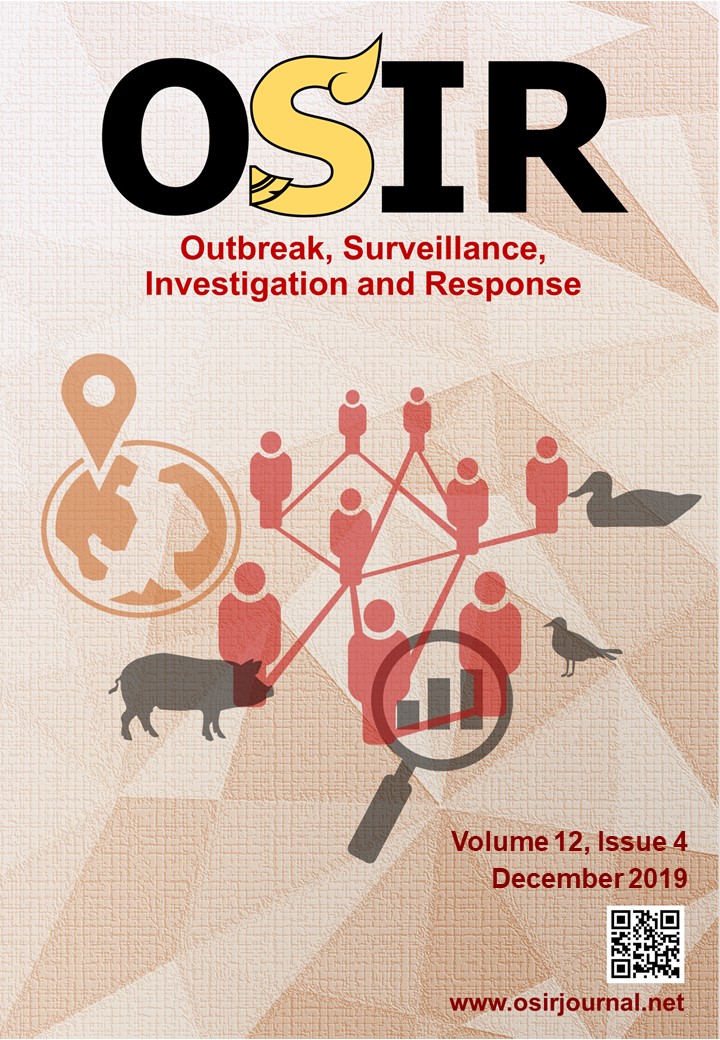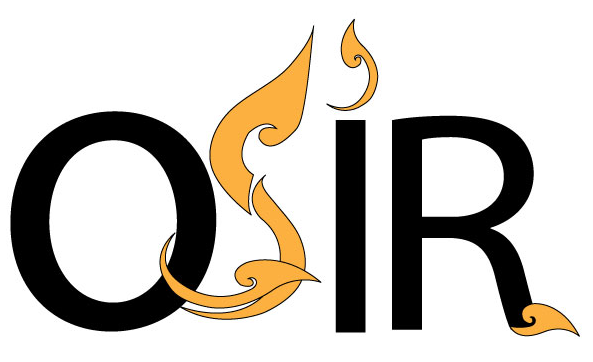Social Support and Emotional Intelligence of Thai HIV-Affected Adolescents and Their Stress and Alcohol Use
DOI:
https://doi.org/10.59096/osir.v12i4.262927Keywords:
social support, emotional intelligence, stress, alcohol use, HIV-affected adolescent, ThailandAbstract
There are many concerns about mental and behavioral problems of adolescents having HIV-infected parents (or “HIV-affected adolescents”). This study identifies associations of perceived social support and emotional intelligence of HIV-affected adolescents aged 12-17 years in Thailand with their stress and alcohol use. This study used follow-up data from 173 Thai HIV-affected adolescents and their parents at baseline, 6, 12, 18, and 24 months. Exploratory factor analysis was conducted to develop indicators of adolescents’ perceived social support. Bivariate correlation and multilevel model analyses were used to examine predictors of adolescents’ stress and alcohol use. While the males reported having a higher number of close friends, greater frequency of calling friends and more social activities than the females, they have less frequency of friend visiting activities. HIV-affected adolescents having higher emotional intelligence reported lower level of stress and less alcohol drinking in the past 30 days. Higher frequency of having alcohol drinking was positively associated with larger friend network and more social activities. Based on the findings, intervention to reduce stress and alcohol drinking among the adolescents needs to address how to improve emotional intelligence and constructive friend and social activities.
References
Poolchareon W. Thailand. In: Yamamoto T, Itoh S, editors. Fighting a Rising Tide: The Response to AIDS in East Asia. Tokyo: Japan Center for International Exchange; 2006. p. 247-65.
Ainsworth M, Beyrer C, Soucat A. AIDS and public policy: the lessons and challenges of ‘success’ in Thailand. Health Policy. 2003;64(1):13-37.
Bureau of Epidemiology (Thailand). The Situation of HIV Infection of Thailand 2007. Nonthaburi, Thailand: Bureau of Epidemiology; 2008.
Punpanich W, Ungchusak K,Detels R. Thailand’s Response to the HIV Epidemic: Yesterday, Today and Tomorrow. AIDS Education and Prevention. 2004;16(A):119-36.
Thaikruea L, Thongsawat S, Maneekarn N, Netski D, Thomas DL, Nelson KE. Risk factors for hepatitis C virus infection among blood donors in northern Thailand. Transfusion. 2004;44(10):1433-40.
Wachter K, Knodel J, VanLandingham M. AIDS and the Elderly of Thailand: Projecting Familial Impacts. Demography. 2002;39(1):25-41.
Rotheram-Borus MJ, Murphy DA, Miller S, Draimin BH. An Intervention for adolescents whose parents are living with AIDS. Clinical Child Psychology and Psychiatry. 1997;2(2):201-19.
Rotheram-Borus MJ, Lee MB, Gwadz M, Draimin B. An intervention for parents with AIDS and their adolescent children. American Journal of Public Health. 2004;91(8):1294-302.
Centers for Disease Control and Prevention (US). HIV/AIDS Surveillance Report: US HIV and AIDS case reported through June 1995. Atlanta, GA: Centers for Disease control and Prevention; 1995.
Zaya LH, Romano K. Adolescents and Parental Death from AIDS. In: Dane BO, Levine CC, editors. AIDS and New Orphans. Westport, CT: Auburn House; 1994. p. 59-76.
Selye H. The Stress of Life. New York: McGraw-Hill; 1956.
West SG, Sandler I, Pillow DR, Baca L, Gersten JC. The use of structural equation modeling in generative research: Towards the design of a preventive intervention of bereaved children. American Journal of Community Psychology. 1991;19(4):459-80.
Gray RE. Adolescent response to death of a parent. Journal of Youth and Adolescence. 1987;16(6):511–24.
Harris ES. Adolescent bereavement following the death of a parent: an exploratory study. Child Psychiatry and Human Development. 1991;21(4):267–81.
Raphael B, Cubis J, Dunne M. The impact of parental loss on adolescents’ psychosocial characteristics. Adolescence. 1990;25(99):689–700.
Harvey SM, Spigner C. Factors associated with sexual behavior among adolescents: a multivariate analysis. Adolescence. 1995;30(118):253–64.
DiClemente RJ, Crosby RA, Wingood GM. Enhancing STD/HIV prevention among adolescents: the importance of parenteral monitoring. Minerva Pediatrica. 2002;54(3):171–7.
Ciesla JA, Roberts JE. Meta-analysis of the relationship between HIV infection and the risk for depressive disorders. American Journal of Psychiatry. 2001;158(5):725–30.
Weissman MM, Warner V, Wickramaratne P, Moreau D, Olfson M. Offspring of depressed parents. 10 years later. Archives of General Psychiatry. 1997;54(10):932–40
Sarason IG, Levine HM, Basham RB. Assessing social support: The Social Support Questionnaire. Journal of Personality and Social Psychology. 1983;44(1):127–39.
Lee S, Detels R, Rotheram-Borus NJ, Duan N. The effect of social support on mental and behavioral outcomes among adolescents with parents with HIV/AIDS. American Journal of Public Health. 2007;97(10):1820–6.
Lee S, Detels R, Rotheram-Borus MJ, Duan N, Lord L. Depression and social support among HIV-affected adolescents. AIDS Patient Care and STDs. 2007;21(6):409-17.
Mayer JD, DiPaolo DR, Salovey O. Perceiving affective content in ambiguous visual stimuli: a component of emotional intelligence. Journal of Personality Assessment. 1990;54(3-4):772–81.
Dulewicz V, Higgs M. Emotional intelligence. A review and evaluation study. Journal of Managerial Psychology. 2000;15(4):341–72.
Akerjordet K, Severinsson E. Emotional intelligence in mental health nurses talking about practice. International Journal of Mental Health Nursing. 2004;13(3):164–70.
Eisenberg N, Fabes RA, Guthrie IK, Reiser M. Dispositional emotionality and regulation: their role in predicting quality of social functioning. Journal of personality and social psychology. 2000;78(1):136–57.
Schultz D, Izard CE, Bear G. Children’s emotion processing: relations to emotionality and aggression. Development and Psychopathology. 2004;16(2):371–87.
Izard CE, Fine S, Schultz D, Mostow AJ, Ackerman B, Youngstrom E. Emotion knowledge as a predictor of social behavior and academic competence in children at risk. Psychological Science. 2001;12(1):18–23.
Li L, Lee SJ, Jiraphongsa C, Khumtong S, Iamsirithaworn S, Thammawijaya P, Rotheram-Borus MJ. Improving Health and Mental Health for People Living with HIV/AIDS: 12-month Assessment of a Behavioral Intervention in Thailand. American Journal of Public Health. 2010;100(12):2418-25.
Li L, Liang LJ, Lee SJ, Iamsirithaworn S, Wan D, Rotheram-Borus MJ. Efficacy of an Intervention for Families Living with HIV in Thailand: A Randomized Controlled Trial. AIDS and Behavior. 2012;16(5):1276–85.
Department of Mental Health (Thailand). Mental Health Promotion for Middle and High School Students [Internet]. Nonthaburi, Thailand: Department of Mental Health; 2009 [cited 2012 Jul 10]. <http://www.dmh.moph.go.th/ebook/s.asp?code=41.>
YRBSS, Centers for Disease Control and Prevention (US). YRBSS 009 Questionnaires and Item Rationale [Internet]. Atlanta, GA: Centers for Disease Control and Prevention; 2009 [cited 2012 Jul 10]. <http://www.cdc.gov/HealthyYouth/yrbs/questionnaire_rationale.htm.>
Sherbourne CD, Stewart AL. The MOS social support survey. Social Science and Medicine. 1991;32(6):705-14.
Parker G, Tupling H, Brown LB. A parental bonding instrument. British Journal of Medical Psychology. 1979;52(1):1-10.
Department of Mental Health (Thailand). Emotional quotient questionnaire from Department of health mental 2004, Thailand [Internet]. Nonthaburi, Thailand: Department of Mental Health; 2004 [cited 2012 Jul 10]. <http://www.dmh.moph.go.th/ebook/s.asp?code=3.>
Rosenberg M. Society and The Adolescent Self-Image. Princeton, NJ: Princeton University Press; 1965.
R Core Team. R: A Language and Environment for Statistical Computing [Internet]. Vienna, Austria; 2012 [cited 2012 Jul 10]. <https://www.R-project.org/.>
Goleman G. Working with Emotional Intelligence. New York, NY: Bantam Books; 1998.
van Heck GL, den Oudsten BL. Emotional intelligence: relationship to stress, health, and well-being. In: Vingerhoets A, Nyklicek I, Denollet J, editors. Emotion regulation. Conceptual and clinical issues. New York, NY: Springer; 2008. p. 97-121.
Trinidad DR, Johnson CA. The association between emotional intelligence and early adolescent tobacco and alcohol use. Personality and Individual Differences. 2002;32(1): 95-105.
Vantamay S. Alcohol consumption among university students: applying a social ecological approach for multi-level preventions. The Southeast Asian Journal of Tropical Medicine and Public Health.2009;40(2):354-69.
Downloads
Published
How to Cite
Issue
Section
License
Copyright (c) 2023 Outbreak, Surveillance, Investigation & Response (OSIR) Journal

This work is licensed under a Creative Commons Attribution-NonCommercial-NoDerivatives 4.0 International License.









